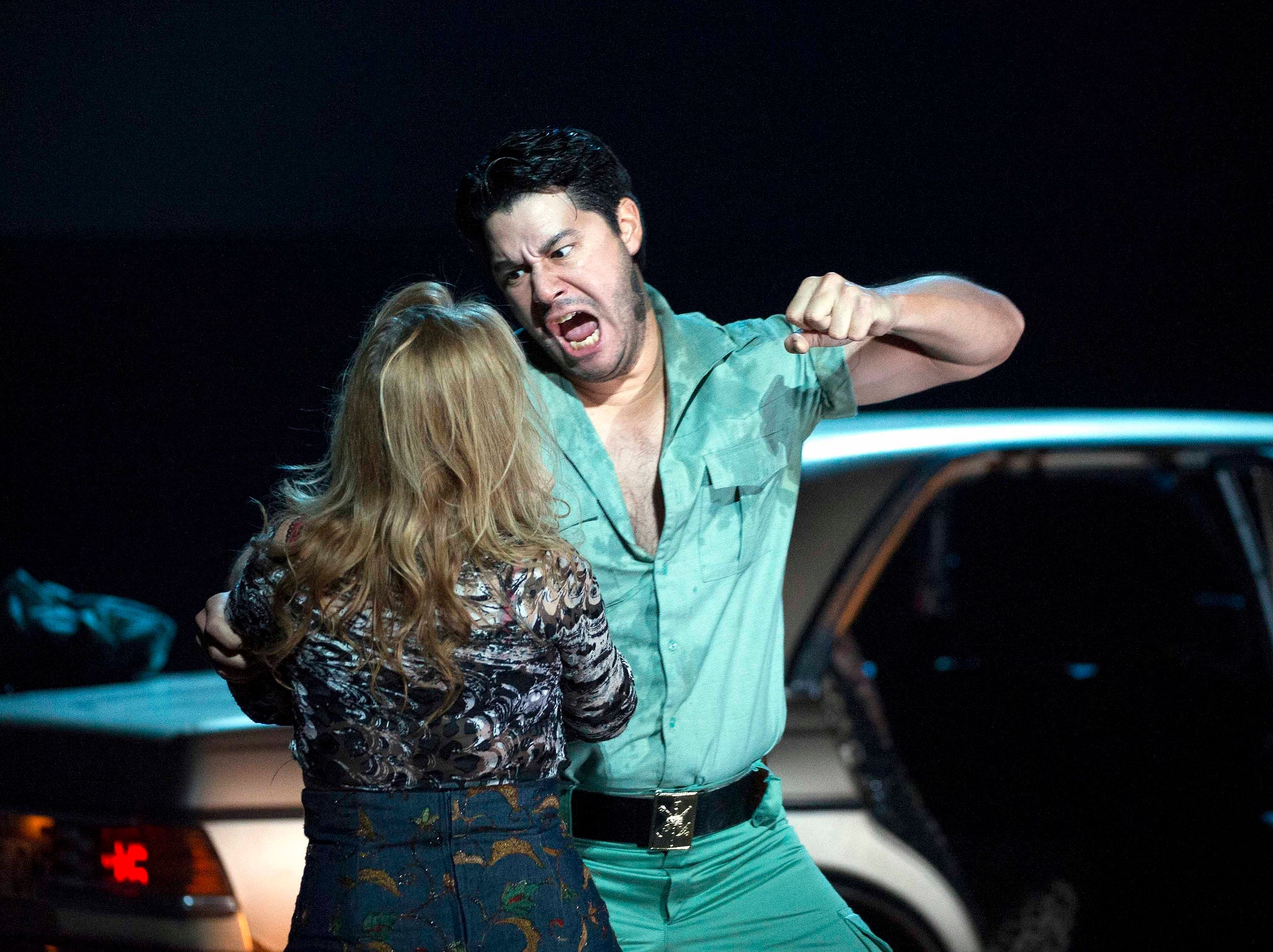
Your support helps us to tell the story
From reproductive rights to climate change to Big Tech, The Independent is on the ground when the story is developing. Whether it's investigating the financials of Elon Musk's pro-Trump PAC or producing our latest documentary, 'The A Word', which shines a light on the American women fighting for reproductive rights, we know how important it is to parse out the facts from the messaging.
At such a critical moment in US history, we need reporters on the ground. Your donation allows us to keep sending journalists to speak to both sides of the story.
The Independent is trusted by Americans across the entire political spectrum. And unlike many other quality news outlets, we choose not to lock Americans out of our reporting and analysis with paywalls. We believe quality journalism should be available to everyone, paid for by those who can afford it.
Your support makes all the difference.Calixto Bieito’s productions always project a frisson in advance, but the auguries surrounding the arrival in London of his 13-year-old ‘Carmen’ – seen and praised all over Europe – were of a gentler nature.
He let it be known that he’d been inspired by the sight of some beaten-up old Mercs on the Spanish-Moroccan border, and that his gypsies would be smuggling plasma TVs.
He had set his drama in Seventies Spain, but would not discourage us from drawing parallels with today’s crumbling Spanish economy; there would be overtones of state corruption and social dislocation.
The curtain rises on a parade-ground with a phone kiosk to one side and a flagpole in the middle. A safari-suited gent lurches across the stage and does a pretend conjuring trick: an obscure point is being made here, with some more obvious points following, as a resolutely thuggish Morales (Duncan Rock) physically abuses his squaddies.
On comes Micaela but - as incarnated by Elizabeth Llewellyn - this is not Bizet’s simple country girl: this Micaela can handle anything, even twenty soldiers trying to rape her. The cigarette girls emerge from the factory, and stoically endure the taunts of the squaddies led by a swaggering Zuniga (Graeme Danby); when the spotlight moves to the kiosk it proves to be containing Carmen, who - as played by the formidable Ruxandra Donose - turns out to be a full-time whore.
But as she contemptuously shrugs off rutting soldiers and clocks her Don Jose (Adam Diegel), we are suddenly plunged into real drama, with Diegel’s ringing tenor rising to the challenge of Donose’s sumptuous contralto; this pair go on to maintain a convincing and moving fight to the death.
Other things are more problematic in this strenuously ‘conceptual’ production. Leigh Melrose’s Escamillo is given a scenario which doesn’t stack up, and Llewellyn’s radiant singing is undermined by her implausible personality-change; the smugglers look and act like chavs on a Club 18-30 binge, while the street-kids are simply tiresome, as are the omnipresent Mercs; a nude male dancer does a tasteful number (why?) in clouds of dry ice; the heavily-pruned drama fires only fitfully.
Musical disappointments include the Act Two quintet and the playing-card trio (where clumsy direction precludes the requisite needle-sharp intonation), but Ryan Wigglesworth extracts exhilarating sounds from both orchestra and chorus. Different? Yes, but also rather dated.
Join our commenting forum
Join thought-provoking conversations, follow other Independent readers and see their replies
Comments